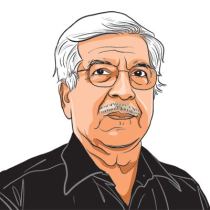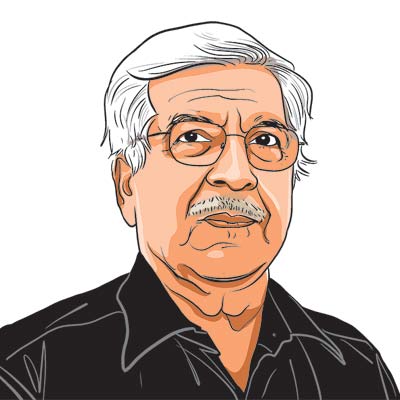Sowing Slogans
MSP is important, but real issues are markets, first-stage processing and supply chains.

In any case, the MSPs effectively matter for and cover only a few crops, and that too in a few regions. (Representational)
We seem to be in an anything-goes frame. In these columns, I had argued that the MET department’s forecast of a “normal” monsoon was with the rider of expected problems in the Deccan Plateau. Unfortunately, I turned out to be right.
By June 27, the country had a more than 10 per cent deficiency and the monsoon had barely reached central India. By July 3, the deficiency was seven per cent and the MET department is saying with some satisfaction that the kharif rainfall is normal as they had predicted. Senior officials and some of the financial press, not to ignore politicians, are predicting a normal kharif harvest.
But a meteorological “normal” need not be an agricultural “normal”. Delayed rains in dry and rainfed areas can mean delayed sowing. Sometimes, a less preferred crop has to be sown. We are happy at the farmer sowing oilseed or pulses but he wants to sow paddy. Until the first week of July, and well past the sowing season, Gujarat and Saurashtra, UP, central Bihar, Odisha and the entire Northeast were deficient in rainfall. This is not to be scoffed at. Remedial steps must be taken.
Niti Aayog officials have correctly pointed out that the MSP is 50 per cent higher than paid out costs in most crops. Others say that was not the recommendation of the National Commission on Farmers. This is turning into a “tu tu mein mein” match. Rajiv Kumar and Ramesh Chand, both economists of impeccable integrity and competence, have argued correctly that in economic theory, rentals on land and return to capital are not always compensated in short-run pricing decisions. But our government does not follow Ricardian principles in its economic policies.
In calculations of controlled item prices or for public sector purchases, or for that matter, for setting tariff rates for domestic protection, land rentals and return to capital is included in cost. It’s the CA who is calling the shots and not economic theory. So, what’s good for the goose should be good for the gander.
I had in one of my books worked out a long-run tariff example and in that had not costed scarcity rentals and abnormal interest rates. But sadly, that example is only used for teaching. So M S Swaminathan is on firm ground in saying that the 50 per cent recommended is on C2 costs and not A2 plus family labour costs. The former includes imputed rental and capital costs. Incidentally, it is wrong to say that transport and sales costs are excluded, as some farm leaders are saying. A committee I chaired a number of years ago had recommended that the time the farmer spends on taking the crop to the mandi and the transport cost should be included in C2 costs. My impression is that has been done.
In any case, the MSPs effectively matter for and cover only a few crops, and that too in a few regions. Also, there is only token procurement in pulses and oilseeds because the prices the farmer has sown for are much higher. The farmer knows when he plants a dal that he will not get the then prevailing price of over Rs 200 a quintal and will settle for Rs 150. The MSP of Rs 50 or Rs 60 is not important and in any case he is worried about highly subsidised imports from the US, Canada or Australia. The government hardly ever imposes a high enough tariff because of the needs of the consumer.
NAFED does some procurement, but it is usually short of funds. In reality, therefore, the MSP is a peg to base slogans on. The real issue of markets, first-stage processing and supply chains lies elsewhere. Getting Walmart to buy farmers’ produce and give them space in its warehouses is important to give the farmer another supply chain. But we are told its case is slowed down because of the trader lobby. In pulses, vegetables, fruit and milk, demand is rising fast and where we get food and agri inflation, the infrastructure has yet to be built.
The writer is an economist and a former Union minister.
For all the latest Opinion News, download Indian Express App
More From Yoginder K. Alagh
- The More Things ChangeEconomic priorities set in Planning Commission in 1970s-80s continue ..
- Mending The FrameIt is time the pattern of training, system of evaluation, of civil servants is debated..
- Marx And UsHe taught us to look at not what the facts say, but what they do..








































No hay comentarios:
Publicar un comentario